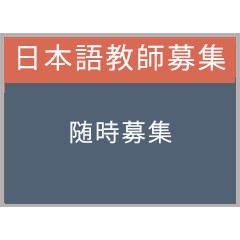Private Japanese Class in KL Kuala Lumpur
Japanese Tutor KAREN

Native Japanese Teacher KAREN
Japanese Teaching Experience 3 Years
Native Language Japanese
Language Ability Fluent in English
Born SAPPORO – Japan
Teaching Area KL Ara Damansara, Bandar Sunway 付近, along the LRT Kelana Jaya line etc
Japanese Courses Provided by KAREN
Private Japanese Class KL Kuala Lumpur
Hello everyone! I am Karen from Sapporo, Hokkaido. I have lived in Malaysia since 2017 and I’m currently taking a degree. My friends learning Japanese let me to interested to teach Japanese.
I was working in Sapporo as a steward at five-star hotels before I came to Malaysia so that I could advise regarding the manner or language in business situations to who hope to work in Japan or Japanese company.
I love traveling, eating, watching movies, and playing Mahjong. I would like to talk about various things you are interested in.
I will provide an appropriate lesson according to your needs. Teaching in English is also welcomed. I’m very looking forward to seeing you soon!
みなさんはじめまして、かれんです。北海道の札幌出身でマレーシアには2017年から住んでおり、現在はクアラルンプールの大学に通っています。札幌とはまた違ったマレーシアの気候が大好きです。マレーシアで出会った日本語を学んでいる友人をきっかけに日本語学習のお手伝いをしたいと思うようになりました。
マレーシアに来る前は札幌で接客業をしていましたので、日本で働きたい方や日系企業にお勤めの方への、お仕事の場面での日本語で気をつけるべき事や作法などのアドバイスも致します。
趣味は旅行、映画鑑賞、食べること、麻雀です。趣味等、みなさんといろいろなお話をしていきたいと思っています。
それぞれのご希望に沿ってしっかりサポートいたしますのでどうぞよろしくお願い致します。お会いできることを楽しみにしております!
Private Japanese Lessons and Personalized Programs
生徒それぞれの目標、希望に沿ってレッスンいたします。読み、書きを習得したい生徒さんにはひらがな、かたかな、漢字中心で教えていき、リスニング、スピーキングを重視する生徒さんには会話中心のレッスンになるように対応しますので事前に教えてください。日本語の細かい意味等を理解するには日本語での説明が適切だと思いますし、自然な日本語に触れる回数を増やすという観点からレッスンでは基本的に日本語しか使いませんが、必要でしたら英語でも説明いたします。
The lesson will be provided depending on each student’s goals and wants. The lesson for students who learn reading and writing will be focused on hiragana, katakana, and kanji, and students who more emphasize listening and speaking will be focused on having a lot of conversation, so that let me know what your goal is. Thinking of explanations in Japanese is necessary for fully understanding the specified meaning of Japanese, and from the perspective of having more opportunity of listening naturally constituted Japanese sentences, only Japanese is used in the lessons. However, I’m willing to give explanations in English if you need it.
Japanese Teaching Approach
Reading and pronouncing Japanese characters are necessary for any use of Japanese. Helping to expand vocabulary.
Listening: Based on conversations about what the student is interested in. I do not have accents so that you are able to practice listening to fluent native Japanese.
Speaking: Also based on conversations about what the student is interested in. Telling the correct pronunciation. Accurate structure of sentences.
Reading: Teaching hiragana, katakana, and kanji (Japanese characters).
Writing: Accurate structure of sentences depending on the writing purpose.
本は生徒さんがお持ちの教材に沿って教えていきます。内容に合わせた単語カードやプリント等の用意を事前にします。ご希望であればビデオ、本などもご用意致しますのでご相談ください。
KAREN先生へ「まで」と「までに」の違いについて説明してくれませんか?
KAREN先生’s Answer:
どちらも“特定された時点より前に“という意味です。使い分けですが、動詞に注目します。継続しない、一度きりの動作のときは”までに”を使います。
例: 明日までに提出してください。(動詞:提出する)
継続する、一定の期間を示す動作の時は“まで”を使います。
例: 昨日は8時までオフィスにいました。(動詞:いる)
“まで”、“までに”どちらも使える動詞もありますがその場合は動作が継続しているか、していないかを判断して使い分ける必要があります。
例: 10時までに寝なさい。
今朝は11時まで寝ていた。 (動詞:寝る)
KAREN先生へ「そうです」と「そうですね」と「そうですか」の違いについて説明してくれませんか?
KAREN先生’s Answer:
“そうです”は自分はそう思っている、一般的にそうであるときに相手の言ったことに対して返す言葉です。肯定の意味があります。“そうですね” は相手の言った事を肯定、同意、共感する意味があります。主に相槌として使われます。“そうですね“は丁寧語ですが、ビジネスシーンでは上司やお客様に対して使うのは適切でない場合があります。”そうですね“自体は失礼な言い方ではありませんが、相手の言った事をそれ正しい、と判定しているととれますので目上の人に使うと失礼になってしまいます。言い換えの表現がたくさんありますので(左様でございます、そうでございますね等)場面によって使い分けると良いです。”ね“がつくことによって親しみを感じる言い方になりますのでカジュアルな関係性や目下の人に使うことには問題ありません。
“そうですか”も“そうですね”と同じく、相手の言ったことに対する肯定、同意を示します。こちらも、丁寧語ですが使う場面に注意が必要です。お客様や取引先の相手、社外の人などに使うのは失礼になってしまいます。相手の話に興味がないように聞こえてしまったり、冷たい返しに聞こえる場合もあります。“そうですね”、“そうですか”を相槌として同じ会話の中で何度も使ってしまうと話に無関心、自分の意見がないと見られてしまうこともあるので、使う場面や頻度に気をつけると良いと思います。
KAREN先生へ「すみません」と「すみませんね」の違いについて説明してくれませんか?
KAREN先生’s Answer:
“すみません”には謝罪、感謝(お礼)、呼びかけの3つの意味があります。
例)
謝罪:他人の足を踏んでしまった時、叱られた時
感謝:落としたものを拾ってもらった時、手伝ってもらった時
呼びかけ:人の後ろを通る時、電車を降りる時混み合った車内で“ごめんなさい“も”すみません“と同じ意味で使われています。
“すみませんね”は“すみません”に“ね”がついただけの言葉ですが、嫌味や皮肉の意味を込めてつかわれることが多いです。叱られたり注意されたことに対して悪いとは思っていないがとりあえず謝っているという印象があるので本当に謝罪したいときには使いません。使う時は誤解されないように態度やイントネーションに気をつける必要があります。
Ask KAREN Teacher Japanese Culture Questions


Stay in Touch
RSS
Facebook
Twitter
Google +1